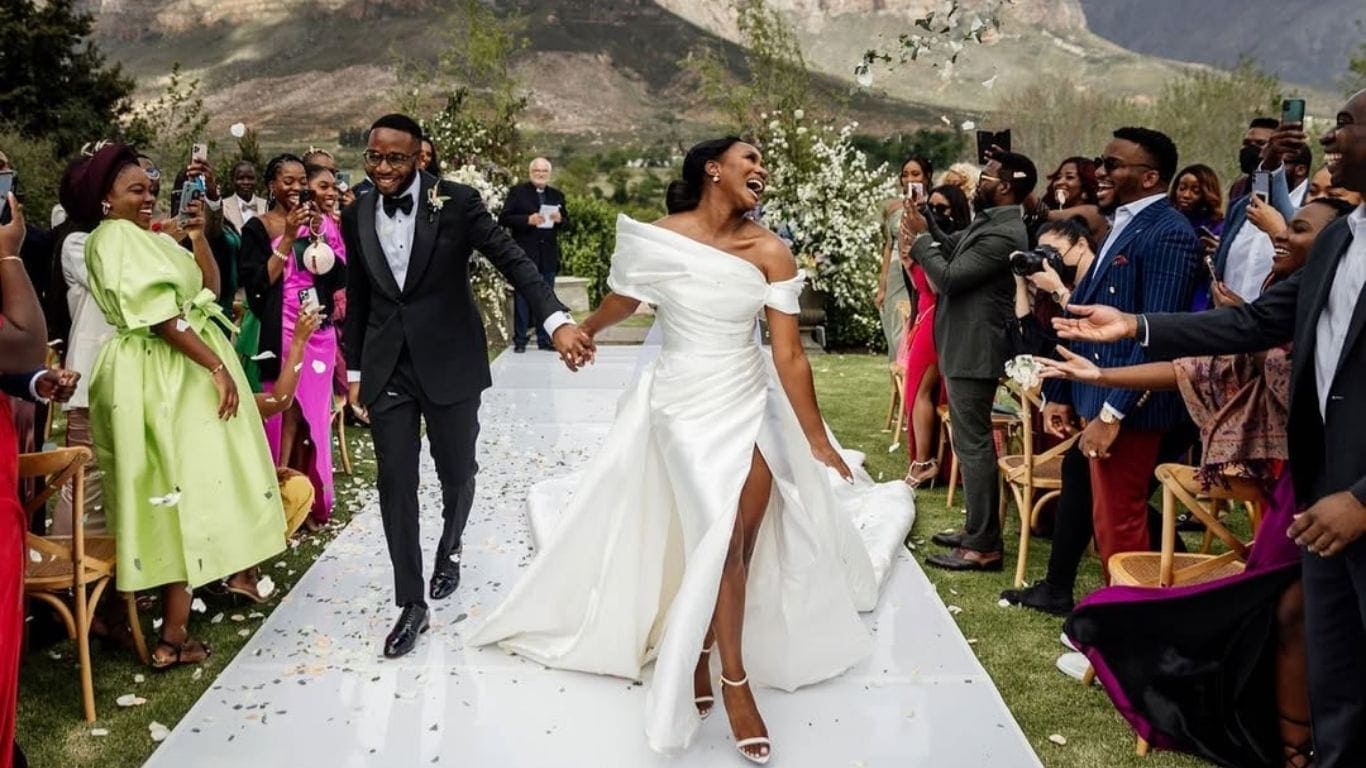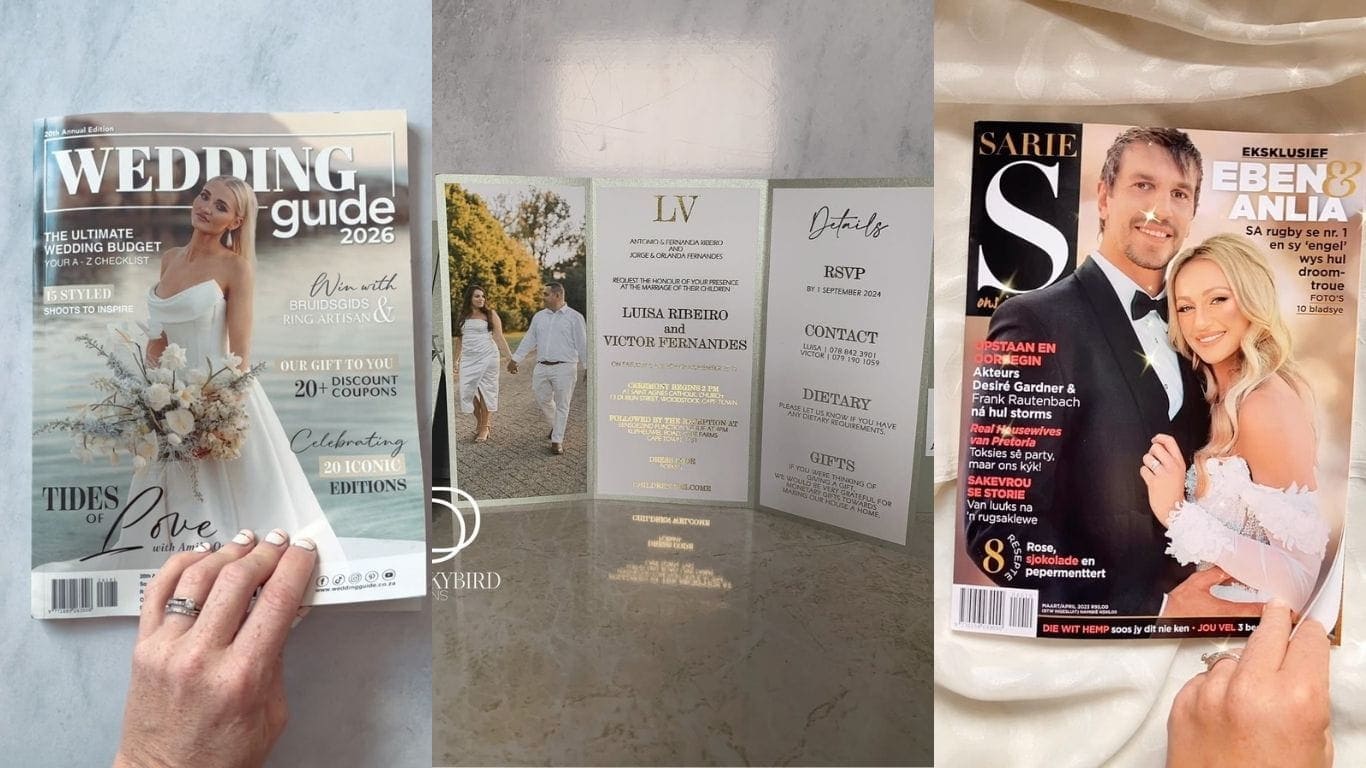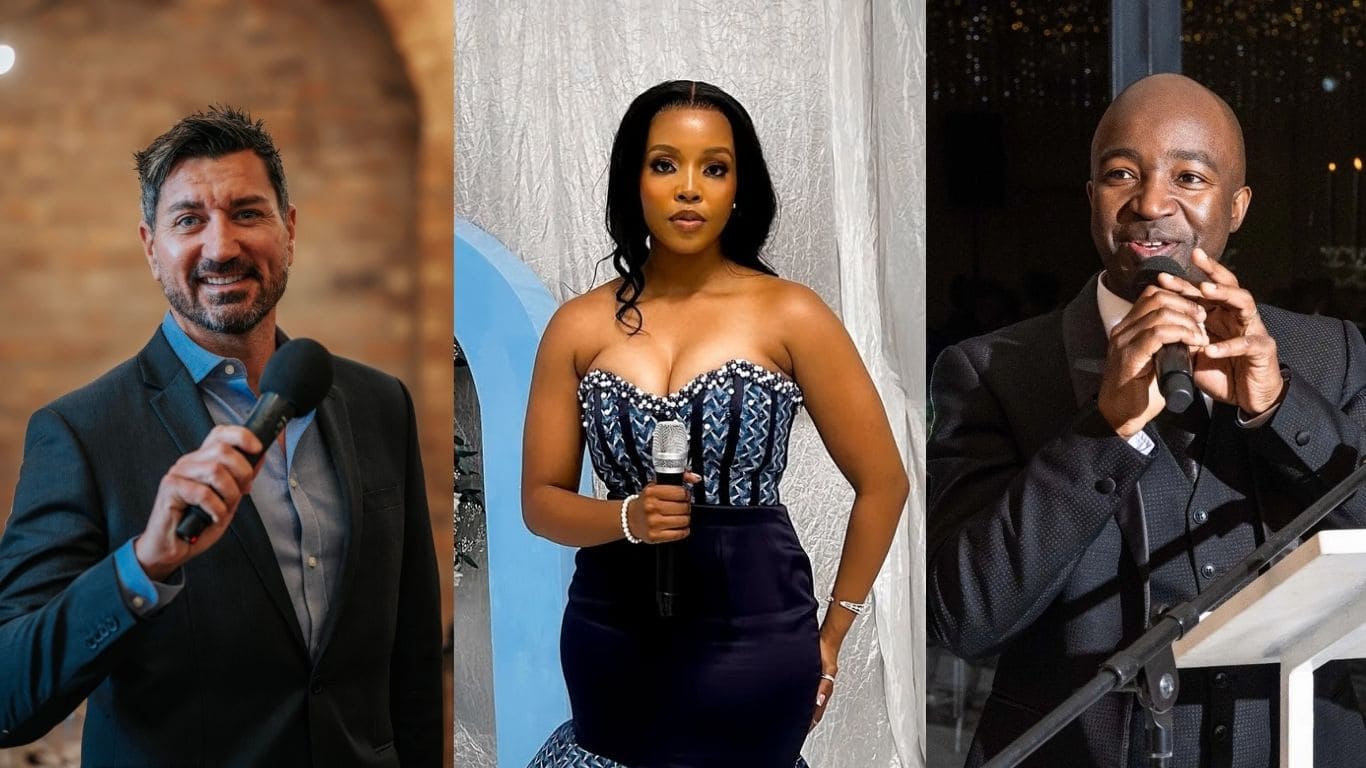Unlocking matrimonial bonds: Navigating the South African Marriage Registry and obtaining your Certificate of union
Marriage is an essential part of human life, as two adults undergo diverse cultural practices to become husband and wife.
The process is undoubtedly daunting, ranging from venue to decoration, catering, and finding possible ways of entertaining guests to make your big day memorable.
With its mild weather and natural beauty, getting married in South Africa is a popular choice for couples. The journey of matrimony is not only a union of hearts but a legal commitment celebrated with rich traditions.
Before a marriage is declared legal in South Africa, couples are required to attend a Home Affairs marriage interview where they are introduced to making their marriage legal by registering and receiving their certificates.
Janatribe has gathered some interesting facts and information about the South African marriage registry and certificates. Keep reading for more.

A Guide to the South African Marriage Registry
The South African Marriage Registry, which marks the lawful culmination of the marriage journey, is the formal legal process that couples must navigate to legalize their union.
As couples exchange vows and the marriage officer signs the official documents, the union becomes a legal and recognized entity. Beyond the legalities, the registry represents the couple’s aspirations, documented in the items chosen for their new life together.
The marriage certificate, a tangible result of this process, serves as a testament to their commitment, while the curated registry items symbolize the shared dreams and beginnings of their marital adventure.
Governed by the Department of Home Affairs, the journey begins with the submission of a Notice of Intended Marriage (Form BI-27) at least three weeks before the wedding. This waiting period allows for public objections, a legal requirement to ensure transparency in the union.
The marriage officer, typically appointed by the Department of Home Affairs, plays a pivotal role in solemnizing the marriage and overseeing the legal aspects of the ceremony.
What is required for marriage registration in South Africa? To successfully navigate the South African Marriage Registry, couples need to gather essential documentation. This includes valid identification documents, passports for non-South African citizens, and proof of the dissolution of any previous marriages. The registry demands meticulous attention to detail in providing accurate information to avoid complications in the marriage process. Understanding and adhering to these documentation requirements are fundamental steps for a smooth and legally sound marriage.
A brief overview of the rules and requirements for getting married in South Africa.
Before you can get married in South Africa, however, you must prove you are legally eligible to marry. Non-resident couples may get a South African marriage license if they follow the procedures.
Marriage in South Africa is a legally binding contract. The South African Marriage Act of 1961 and the Civil Union Act of 2006 govern marriages in the country. Both outline the rules regarding the process of marriage and who may marry one another, as well as where and how the wedding occurs. If you fail to comply with the regulations, your marriage may be declared null and void.
Whether you are a foreigner marrying a South African citizen, a South African marrying a foreigner, or you are both foreigners, every couple planning to marry in South Africa must follow the rules.
South African Marriage Certificate
A marriage certificate is a legal document that serves as official proof of a marital union between two individuals. It is a crucial record issued by the relevant government authority, typically the Department of Home Affairs in South Africa, verifying that a marriage ceremony has taken place and that the couple is legally recognized as married. This document holds significance not only as a legal acknowledgment but also as a key piece of identification for married individuals.
The marriage certificate typically includes essential details such as the names of the spouses, the date and location of the marriage ceremony, and the signatures of the officiant and witnesses. In South Africa, obtaining a marriage certificate involves adhering to specific legal procedures, including the submission of a Notice of Intended Marriage and the solemnization of the marriage by an authorized marriage officer. This certificate is an indispensable record for various purposes, including name changes, immigration processes, and legal rights related to spousal benefits.
Beyond its legal implications, a marriage certificate symbolizes the commitment and union of two individuals in the institution of marriage. It is a tangible representation of the vows exchanged during the wedding ceremony and holds sentimental value as a testament to the shared journey of the married couple. As a document that captures the legal and emotional aspects of a marital union, the marriage certificate stands as a lasting memento of the commitment made between spouses.

Types of marriage certificates in South Africa
Per the official South African Government website, three types of marriages are recognised under South African law: civil marriages, customary marriages, and civil unions. Couples who choose any of the types of marriage are entitled to a marriage certificate.
In South Africa, there are two types of marriage certificates: abridged marriage certificates and unabridged marriage certificates. The type of marriage certificate depends on the status of your nationality and the type of marriage you entered into, per Certificate SA.
Under the South African Marriage Act, couples must receive a marriage certificate immediately after the ceremony. Marriage certificates require two witnesses and the marriage officer. These witnesses must be over the age of 18 and have the legal capacity to witness a marriage.
Abridged marriage certificate
An abridged marriage certificate is a shorter version of the marriage certificate and contains essential information about the marriage. This type of marriage certificate contains both your details (such as your full name and ID number) as well as the date of the marriage, DOCASSIST reports.
Couples receive abridged marriage certificates from the Home Affairs department when applying for marriage certificates. It is common for couples to receive their certificates immediately after they get married.
If one of you is a South African and lives in South Africa, this is the only certificate you require.
Unabridged marriage certificate
The unabridged marriage certificate is a more comprehensive version and includes additional details. Unabridged marriage certificates, which receive an apostille at the Cape Town High Court, let you register your marriage in your country of residence.
This type of marriage certificate in SA is issued to non-South African couples, couples in which one partner is not South African, and couples that are not living in South Africa. You should also apply for an unabridged marriage certificate if you plan to be out of the country for an extended period shortly after marriage.
Apply for a marriage certificate in South Africa
To start the process, you must first register your intention to marry with the Department of Home Affairs and apply for a marriage certificate. Couples must apply for a Department of Home Affairs marriage certificate at least three months before the wedding date.
Home affairs marriage forms are available on request, per Expatica. Submit the forms along with the relevant supporting documentation. These include:
- Identification documents, such as a South African ID card
- Both passports, if one partner is not South African
- A complete BI-31 form, which declares that you may legally marry
- Minors under the age of 18 must present written consent from both parents and/or Form DHA-32. For boys under the age of 18 and girls under the age of 15, consent from the Minister of Home Affairs is also necessary.
- Official divorce decree, stamped by the court, if one partner has previously been married
- Death certificate, if one partner has been widowed
How much is a South African marriage certificate?
Marriage ceremonies taking place at a Home Affairs office are FREE OF CHARGE and entitled under the Civil Union Act 2006 for both heterosexual and same-sex couples, per Local Truth.
It is right to know that, despite marriage certificates coming at no cost, they are for first-time abridged applicants only; subsequent copies may require a small fee. Unabridged marriage certificates, however, require charges such as R75.
Some private organisations, like Certificates RSA, may charge you as much as R1300,00, R3900,00 to make the process of obtaining your unabridged and abridged marriage certificate in South Africa faster and more hassle-free.
If one partner has passed away and you need to prove that you have been married, an unabridged marriage certificate will be issued.
How long does it take for a marriage to be registered in South Africa?
Once your marriage officer notifies the Department of Home Affairs, you will automatically receive an abridged certificate. An abridged certificate will be issued on the same day that it’s applied for. However, Western Cape reports that an application for an unabridged certificate takes approximately 6 to 8 weeks to process.
How can I check my marriage status online in South Africa?
You can check your marital status online via SMS:
Type the letter M and your ID number (e.g., M 5001010050080) and SMS it to 32551.
You can also use the SMS line to do the following checks:
, For your ID document application status, type ID, then your ID number (e.g., ID 5001010050080).
, For your passport application status, type the letter P and then your ID number (e.g., P 5001010050080).
, For your living status (whether official government records have you listed as either dead or alive): type the letter L and then your ID number (e.g., L 5001010050080).
, For a duplicate ID number, type the letter D followed by your ID number (e.g., D 5001010050080).
You’ll receive the status directly on your cellphone via SMS.
Are there fake marriages in South Africa?
There are several fake marriages in SA. A fraudulent or fake marriage is when somebody uses the ID number of another person in a marriage contract without their knowledge or consent.
Victims typically find out about their fake marriages when it’s already too late or when they decide to get married and find out that they’re already married, according to Home Affairs records.
The Department of Home Affairs is taking extra measures to limit fake marriages.
According to the Department, there’s been a decrease in fraudulent marriages since the introduction of smart card IDs in 2003 because it’s harder to duplicate the old green barcoded IDs. However, fake marriages and identity theft remain a huge concern.
To prevent fraudulent marriages in South Africa, the Department of Home Affairs implemented stricter rules regarding foreign marriages in South Africa.
Who can get married in South Africa?
Before getting married in South Africa, you must meet the Department of Home Affairs’ marriage requirements. In most cases, this shouldn’t pose a problem. Under South African marriage laws, the following people cannot marry in South Africa:
- Those who are already married: If you have previously been married, you must provide evidence that the marriage has been legally dissolved.
- Minors (i.e., those under the age of 18), unless they present written consent from parents, legal guardian, or the court, depending on the situation
- Persons suffering from severe mental disorders that prevent them from understanding the nature of marriage or making decisions
Asylum seekers and refugees may marry in South Africa if they meet the Home Affairs marriage requirements. They must also present Home Affairs with a valid asylum seeker/refugee permit. In addition, they must include a declaration from the police confirming their marital status.
The wedding process in South Africa
Marriage ceremonies must have a licensed marriage officer. Examples of this include a religious minister, magistrate, or Home Affairs marriage officer.
Weddings in South Africa must happen in a religious building, public office, or private house. If there is a serious illness, the wedding can take place in a hospital.
The service must occur in the presence of two witnesses.
If you plan to marry in a garden or on a beach, you may need to repeat the legal aspect of the service. The same applies to marrying in a restaurant or other building not defined by the act. However, as long as your marriage is solemnised by a competent marriage officer, the courts are not readily inclined to declare a marriage invalid simply because it was held in the wrong place.
Marriages at Home Affairs or court
Couples who intend to marry outside of a religious or public location may hold their ceremony at any Home Affairs office. Marriage ceremonies at Home Affairs are free of charge.
Complete the marriage interview
Before legally confirming a marriage in South Africa, couples must attend a Home Affairs marriage interview. The purpose of this procedure is to ensure that both parties are willingly entering into marriage of their own accord and not under duress. If you miss an interview, officials won’t register the marriage certificate. As a result, they will nullify the marriage.
Prenuptial agreements in South Africa
Marriages in South Africa are automatically ‘in community of property’, meaning that assets from both partners conjoin. If you plan on marrying out of a community of property in South Africa, consult a lawyer beforehand. A lawyer will help draw up a contract designating the division of property; this is called a prenuptial agreement.
Pre-nuptial arrangements protect one party from the liability of debts accrued by their spouse and allow you to maintain wealth and property accumulated during the marriage.
Before marrying, you must present any prenuptial agreements to the marriage officer with a letter from your lawyer confirming the mutual agreement.
Who pays for what in a South African wedding ceremony?
Working out a budget for your wedding is one of the first things that should be done once the date is set. Will the ceremony be formal, semi-formal, or informal? A formal wedding, of course, will be the most expensive, and an informal one the least. Nothing is set in concrete.
Fortunately for parents blessed with daughters, unlike a decade ago, the lines are no longer rigidly drawn. The modern trend is for the families of the bride and groom to share the expenses involved in a wedding so that the bride’s parents are not burdened with the full amount. Also, with many couples marrying later and having money of their own, they are sharing in the expenses.
There are no longer any hard and fast rules as to “Who Pays for What, , but a general guideline follows as to the usual payment arrangements.
The bride (and/or her family) pays for:
- invitations and all wedding stationery for church and reception
- bride’s and bridesmaids’ dresses and accessories
- flowers for the church and reception
- photographer/videographer
- all reception costs, music, etc. (excluding drinks, barmen, and related expenses)
- wedding cake.
The groom (and/or he’s family) pay for:
- legal expenses (e.g.: antenuptial contract)
- ceremony expenses (marriage officer’s fee, organist, soloist, tips, etc.)
- bride’s and bridesmaids’ bouquets
- buttonholes and corsages for the wedding party
- hiring of clothes for himself and best man (if necessary)
- gifts for the bridesmaids and best man
- drinks at the reception and related expenses, i.e hiring of barmen,
- hiring of glasses, etc.
- transport for the bride to the church and reception
- wedding night accommodation and the honeymoon.







